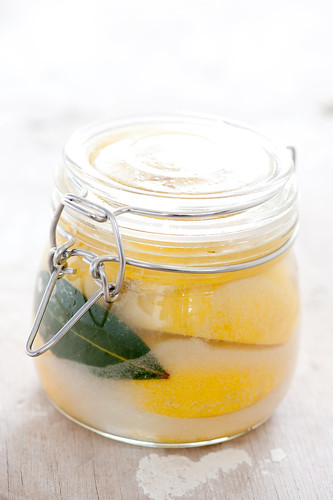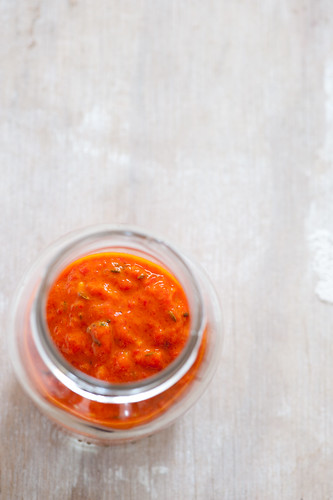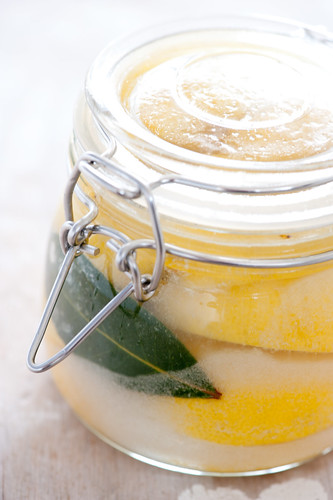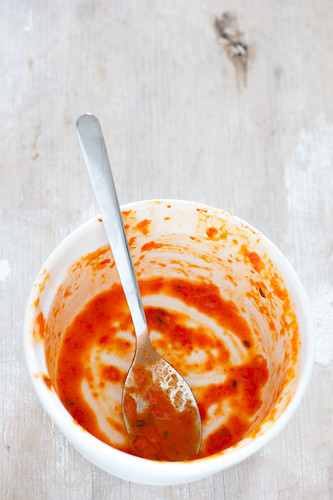Ever since I first saw the movie Casablanca, I’ve been fascinated by Morocco. There’s just something about that North African country that inspires my imagination. The colours, the textiles, the kasbahs, the desert, but most importantly, the food(!)
I vividly remember my first visit to the country. My sister, Batgirl and I had decided to catch the ferry from Spain to Tangiers. For some reason we were really nervous about our first venture to North Africa. So when we called home to Mum, we were careful not to mention our impending Moroccan adventure.
I’m not sure why we were so worried, because we absolutely loved our time exploring the medinas and souks of Marrakech and Fez. Not to mention the breathtaking bus trip over the Altas mountains to the desert border town of Ouarzazate.
It should go without saying, I was captivated by the food. From the wonderful variety of meat tajines (stews) flavoured with figs or dates, to the street food kababs, to succulent stuffed eggplant, to the tangy lemon chicken, to thick lentil soup known as harira, to the sacred couscous with seven vegetables. I wanted to eat it all.
Unfortunately, I did eat it all. Including some irresistible salad which made me very sick and cut short our Moroccan voyage as we legged it back to Spain to ride out the food poisoning in a hotel room with Western toilets.
While I’m still yet to voyage back to the land of couscous in the flesh. I’ve been exploring her cuisine in my own little kitchen, with many wonderful books as a guide. One of the things I love the most is how exotic and unusual the flavour combinations of Morocco can taste to an Australian girl, but the ingredients themselves are so commonplace.
Take lemons and salt and let them hang out for a while and you end up with the super-lemony fragrance of preserved lemon skin. Take roasted peppers and a good deal of chilli and a few key spices and you end up with harissa, the best hot sauce ever.
I hope you’ll have a go at adding a little Moroccan exoticism to your own cooking. Here are a few tips to get your imagination going.
how to use preserved lemons
Once your lemons have been sitting for 4 weeks, they’re ready to use. But the crazy thing is that you’re going to dig the lemon out of the jar, remove the flesh and discard it. It’s the rind that you want. I find it best to rinse the rind well under the cold tap to remove the excess saltiness. Because these little beauties sure are salty. Be warned: a little goes a very long way.
where to use preserved lemons
- anywhere you’d normally use lemon zest for a more intense, lemon kick
- finely chopped and tossed in with your salad dressing for a fragrant surprise.
- as a sauce for fish
- toss 1/2 perserved lemon, finely sliced in a chicken stew with tomatoes & olives and you’ll have yourself a wonderful chicken tajine
- in a hearty red lentil and perserved lemon soup (from my pre-minimalist 5 ingredient days)
- finely slice and toss through greens such as spinach, silverbeet, chard or kale that have been wilted in a pan with olive oil and garlic. Makes an interesting change from
- finely mince and sitr a little into some natural yoghurt for a wonderfully versatile savoury yoghurt sauce.
- with olive oil and garlic to marinate large green olives
- finely chopped with couscous
- in a sweet potato salad
where to use harissa
- anywhere you’d normally serve a hot chilli sauce
- as a marinade for kebabs (I made tofu kebabs from cubes of tofu marinated in harissa and a little olive oil last week and served extra harissa on the side – so good)
- a sauce to accompany roast chicken
- as a more exotic alternative to pesto in soups
- for heat and spice in one hit in vegetable tajines (stews)
- combine with equal parts lemon juice and olive oil for a potato salad dressing with a kick
- as a replacement for pesto in this simplest baked eggplant
like to learn more?
Here are my three favourite Moroccan cookbooks
The Moro Cookbook by Sam&Sam Clarke
The first cookbook from the London restaurant of the same name, I can’t tell you how much I love the work of the Clarkes. While I absolutely love all of their three cookbooks, I’d recommend starting at the beginning as this is where they capture all the classics. One of those rare books written by chefs that translates effortlessly to home cooking. Have been plotting an excuse to visit London and eat at the restaurant for years now. One day.
Arabesque Claudia Roden
I’m a huge fan of Claudia Roden. She writes in a wonderfully engaging way. While her Book of Middle Eastern Food is more comprehensive than this volume, I find it much more approachable. Call me superficial, but I always prefer a cookery book with pictures. Divided into 3 sections covering Morocco, Lebanon and Turkey this is my first go-to book for Moroccan home cooking.
Arabesque by Greg & Lucy Malouf.
A lot more cheffy than Claudia’s Arabesque, this is my favourite book from the wonderful Melbourne-based Greg Malouf. It focuses on all Middle Eastern food with recipes and details organised by ingredients. So is a wonderful go-to for inspiration, although I often find the recipes one the more complicated end of the spectrum.

[5 ingredients]
preserved lemons
makes 1 jar
While you can buy preserved lemons, I always prefer the more cost effective method of making my own. Other citrus such as limes and oranges can also be preserved using this method, but lemons are easily my favourite.
This is not the time to be squandering your precious Maldon or other fancy sea salt flakes. Any fine sea salt or kosher salt will do.
Once you open the jar, I tend to keep the lemons in the fridge so they last as long as possible. Most books will tell you they’ll keep for a year unopened, but I’ve had a few last twice as long as that when they got lost in the back of the cupboard.
3 – 4 thick skinned lemons
extra lemon juice
6 – 8 tablespoons fine sea salt
1-2 bay leaves, optional
1. Sterilise a medium jar (with a good lid or seal) by popping in the dishwasher on the hottest cycle, or using your favourite sterilisation method.
2. Place the thick skinned lemons in a strainer and pour boiling water over the lemons to get rid of any dirt or bugs. Drain.
3. Chop a lemon into quarters, lengthwise.
4. Place a tablespoon salt in the bottom of the jar and pack in the lemon quarters, squashing them in to release as much juice as possible. Scatter with another tablespoon salt.
5. Repeat with the other 2 – 3 lemons, until the jar is full. If using the bay leaves, poke them in along the sides of the jar while layering.
6. Finish with a final tablespoon or two of salt. Cover with lemon juice.
7. Seal jar and store at room temperature for 4 weeks.
watch preserved lemon video on YouTube

[5 ingredients | 10 minutes]
5 ingredient harissa
makes about a cup
I was a bit nervous about getting an authentic tasting harissa with only 5 ingredients. Traditional recipes usually run to three times that. But I was super excited with the results. Phew.
I normally don’t worry about preserving jars or anything for this. It keeps easily for a few weeks in the fridge.
Chillies can vary enormously in their intensity which makes cooking with them a big moving target. I tend to use less chillies and keep the seeds in because it’s quicker and I like the heat. Feel free to deseed if you prefer a milder harissa. Or increase the chilli count if you are more dare-devilish.
1 jar roasted red peppers (250g / 9oz), drained
5 small red chillies,
1 teaspoon smoked paprika
2 teaspoons caraway seeds
1 tablespoon lemon juice
1. Place peppers, chilli, paprika, caraway seeds and lemon juice in a food processor. Whizz until you have a smooth-ish paste.
2. Stir through 3 tablespoons extra virgin olive oil. Taste and season.
___________________________________________________________
Enjoyed this? Why not share it with your friends on Facebook or Twitter or even email them the link.
Share




No comments:
Post a Comment